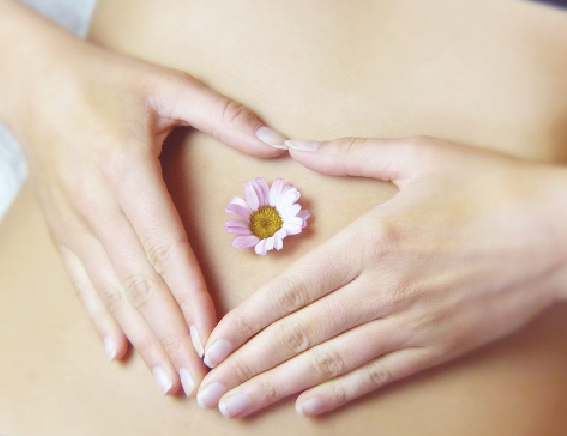The health of the womb is central to overall female well-being, influencing reproductive health, hormonal balance, and even emotional states. For centuries, women in various cultures have relied on food, herbs, and holistic practices to support womb healing. Whether it’s healing from trauma, childbirth, or managing conditions like fibroids, endometriosis, or PCOS, the right nutrition can play a transformative role in restoring balance.
Foods For Womb Healing
Leafy Greens Rich in magnesium and iron, leafy greens like spinach, kale, and collard greens help reduce inflammation and replenish blood loss. Iron is vital for women, particularly during menstruation, to prevent anemia and fatigue.
Healthy Fats Fats such as omega-3s (from flaxseeds, walnuts, and fatty fish) are anti-inflammatory and support hormone balance. They help regulate menstrual cycles and reduce symptoms associated with PMS, endometriosis, or fibroids.
Herbs And Spices
Turmeric: Known for its anti-inflammatory properties, turmeric can reduce inflammation in the womb.
Ginger: Promotes circulation to the uterus, reducing pain and bloating during menstruation.
Red Raspberry Leaf: This herbal tea strengthens the uterine walls and is often recommended for women with heavy menstrual flow.
Fruits
Berries: Blueberries, raspberries, and blackberries are high in antioxidants, which protect cells in the womb from damage and encourage tissue repair.
Pineapple: Rich in bromelain, an enzyme that helps reduce inflammation and support tissue healing, pineapple is often recommended for womb health, especially after childbirth or surgery.
Whole Grains:Whole grains like quinoa, brown rice, and oats provide essential B vitamins, fiber, and magnesium, supporting energy levels and stabilizing blood sugar, which is important for hormonal balance.
Hydration And Detoxification Drinking water with a splash of lemon aids detoxification, keeping the liver functioning optimally to clear out excess hormones and toxins that can affect womb health.
Holistic Practices For Womb Healing
In addition to diet, women can support womb healing through lifestyle practices that nurture the body and spirit:
Warm Compresses and Castor Oil Packs: Applying warmth to the abdomen, combined with castor oil, can improve circulation to the uterus and help break down cysts or scar tissue.
Yoni Steaming: A traditional practice where women sit over steaming water infused with healing herbs like rosemary and calendula. This can help cleanse the womb, soothe menstrual cramps, and promote overall pelvic health.
Yoga and Meditation: Certain yoga poses, such as child’s pose and reclining bound angle pose, support womb healing by releasing tension in the pelvic area. Meditation focused on the sacral chakra (the energy center associated with reproductive health) can also aid in emotional and physical healing.
Here’s a Nigerian-inspired recipe for womb healing that incorporates nutrient-rich ingredients known for their restorative properties.
Nigerian Womb Healing Soup: Ewedu Soup With Fish
Ewedu soup is a traditional Nigerian dish made from jute leaves (ewedu). It is nutrient-dense and known for its healing properties, especially for women’s reproductive health, as it is rich in iron, calcium, and vitamins.
Ingredients:
2 cups fresh ewedu (jute leaves)
1 medium-sized fresh fish (e.g., mackerel or tilapia)
2 tablespoons ground crayfish
2 cloves garlic, minced
1 teaspoon ground ginger
1 teaspoon locust beans (iru)
1 teaspoon palm oil
2 cups water or broth
1 small onion, chopped
1 scotch bonnet pepper (optional, for a spicy kick)
Salt to taste
1 teaspoon bouillon powder (optional)
1 tablespoon ground flaxseeds (optional, for added nutritional benefit)
Cooking Instructions:
1.Pick and thoroughly wash the ewedu leaves to remove any sand or dirt.
Blend or pound the leaves in a mortar until smooth. You can add a little water to make blending easier.
2.In a medium-sized pot, bring 2 cups of water or broth to a boil.
Add the fresh fish, chopped onions, minced garlic, ground ginger, and scotch bonnet (if using). Let the fish cook for 10-12 minutes until it is fully cooked.
Remove the fish carefully from the broth and set aside.
3.In the same pot with the fish broth, add the locust beans (iru) and allow them to cook for 2 minutes.
Stir in the blended ewedu leaves and ground crayfish, and cook on low heat for 5-7 minutes.
4.Add palm oil, ground flaxseeds (optional), and a pinch of salt. Stir well and allow the soup to simmer for another 2-3 minutes.
5.Carefully place the cooked fish back into the pot of ewedu soup.
Allow everything to simmer together for another 3-5 minutes to let the flavors blend.
6.Serve the ewedu soup warm with a side of amala (made from yam flour), pounded yam, or brown rice for a complete and nourishing meal
Nutritional Value:
Ewedu (Jute leaves): Rich in iron, calcium, and vitamins A and C, which help boost immunity, improve blood circulation, and support overall womb health.
Fish: Provides lean protein and essential omega-3 fatty acids, promoting hormonal balance and reducing inflammation.
Crayfish: High in protein and calcium, essential for tissue repair and bone health.
Flaxseeds: A great source of omega-3s, fiber, and phytoestrogens, which help regulate hormone levels and reduce inflammation.
Enjoy!





